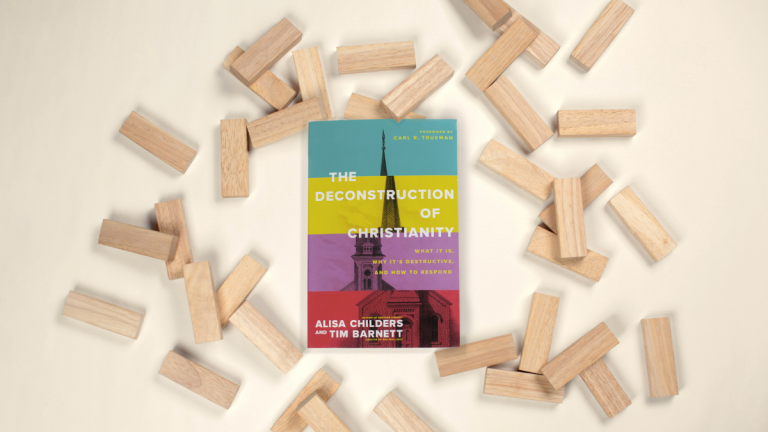In recent years, more and more young Christians have been encouraged to deconstruct their faith. Often, it begins with a well-known Christian author, pastor, musician, or public figure announcing that they are no longer a Christian. They make an announcement online to their many followers on Twitter/X or YouTube, explaining why they are abandoning the fundamental principles of Christianity. Usually, it is in the name of “inclusiveness” and “tolerance” that they embrace unbiblical views and lifestyles, such as same-sex marriage, transgenderism, and abortion. Young believers are encouraged to follow suit.
There are countless stories. A teenager becomes cynical about Christianity, citing school friends and social media stars who call biblical ethics first optional, then completely irrelevant. A close friend adheres to same-sex marriage or LGBTQ ideology, saying affirmation is what Jesus would have done and is the only compassionate response. A spouse begins to claim that God does not like to allow evil and suffering, or that Scripture can be helpful but is not authoritative. A small group leader uses the latest social media controversy to judge and interpret Scripture, rather than the other way around.
If any of this sounds familiar, its name is “deconstruction”. And it impacts Christian families and communities around the world.
Fortunately, a new book, The deconstruction of Christianity: what it is, why it is destructive and how to respond explains deconstruction for what it really is and helps Christians respond to it with grace and wisdom. This is perhaps the definitive book on the phenomenon of deconstruction and its impact on the Church today. Authors Alisa Childers and Tim Barnett clear up the confusion by defining what deconstruction is, why it appeals to so many people, and why it is dangerous.
According to Childers and Barnett, of construction is simply a modern term for abandoning the faith, something that is not new. As they write in the book,
Deconstruction is a kind of death. Those who deconstruct experience the death of their beliefs, their community, their trust, their relationships, and, quite possibly, their faith. It’s not hard to understand why it’s so painful. Christianity is not something that one experiences in isolation.
Of course, this is nothing new. People have been questioning and abandoning the faith for centuries. However, thanks to social media, “deconstruction” is more public than ever. It means that,
(D)econstruction does not affect only the one who crosses it. It also impacts those who love the person going through it. When deconstruction leads to a rejection of faith, it can feel like death both for the deconstructor and those close to them. Much like physical death, deconstruction can leave loved ones shocked, confused and grieving.
But their book doesn’t stop there. Childers and Barnett provide wisdom for those whose loved ones are unraveling, from understanding the heartbreak of separation from faith to practical advice on how to help make the Church a welcoming place the difficult questions.
This is a book intended to help readers understand what deconstruction is and what it is not, as well as to understand common deconstructionist terms like “evangelical.” It allows loved ones to identify the misleading thought patterns that lie beneath deconstruction and gain the wisdom to thoughtfully examine one’s own faith without simply jumping into deconstruction. And it offers believers useful tools for establishing loving, truthful relationships with those around them who are deconstructing.
Childers and Barnett’s book is a reminder that Christians struggling with doubt are not alone. Many Christians have faced doubts regarding the faith. In fact, in the Bible, people like Job and the writers of the Psalms encourage us to ask our questions to God, who is the Source of all truth and wisdom. As Childers and Barnett write: “One of the beautiful realities we find in Scripture is that we have permission to be real with God, even if that means expressing our frustrations, concerns, and doubts. »
Ultimately, Childers and Barnett point us beyond the discouragement of deconstruction to the rock-solid hope we have in Christ. Only when Christians understand entire the story of God’s world, rooted in this hope, can we face our doubts, whether our own or those of others, from a place of confidence, not fear or anger. This month you can claim a copy of The deconstruction of Christianity for a donation of any amount to the Colson Center. To make your donation, go to colsoncenter.org/march.
This Breakpoint was co-written by Jared Hayden. For more resources for living like a Christian in this cultural moment, visit breakpoint.org.


